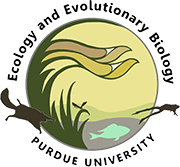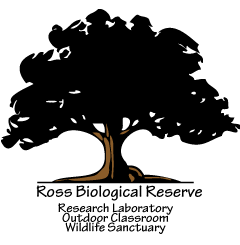Ecology and Evolutionary Biology
About Us
The Ecology and Evolutionary Biology Research Area is a dynamic and cohesive research and teaching community. Our focal research areas are Animal Behavior and Sensory Ecology, Ecological and Evolutionary Consequences of Human Impacts, Ecology of Emerging Infectious Diseases, and Evolutionary Genomics.
- Many faculty members belong to multiple focus areas, and these areas include faculty from other departments due to the breadth and interdisciplinary nature of our research programs.
- We use laboratory, field, and computational methods to study individuals, populations and communities in Indiana and around the world, and we strive to contribute to the important role of life scientists in effectively communicating biological principles in the classroom and beyond.
Our community maintains a strong commitment to graduate and undergraduate education and training in the biological sciences.
- This commitment is realized in our approach to mentoring our students. Our courses provide a firm academic foundation for our students, and our research programs provide opportunities for both graduate and undergraduate students to develop skills in a broad range of techniques and investigative approaches.
- Graduate students in our area work closely with faculty mentors on a diverse range of projects that may be directly aligned with their advisor's research program or designed primarily by the student.
- Undergraduates are encouraged to participate in research projects with the guidance of a major professor and/or graduate student. Members of our cluster meet weekly for our "EcoLunch" seminar series that provides a casual yet critical forum for Purdue students, faculty and visiting scientists to present their research.
- Alumni from our program have successfully pursued careers in academia, conservation and education.
Ongoing research by members of our research area includes avian visual and auditory systems, evolutionary genetics and life history evolution, host-parasite interactions and evolution, behavior and genetics of animal dispersal, ecological risks associated with genetically modified organisms, evolution of specialization, biological invasions, ecological impacts of climate change, restoration ecology and genetics. A large portion of the research we do is at the Ross Biological Reserve, which is a short drive from campus.
Faculty and students are also actively involved with other researchers at Purdue and beyond who have overlapping interests, including other departments in the Colleges of Science and Agriculture, the Center for the Environment (C4E), Purdue Climate Change Research Center (PCCRC), Purdue Interdisciplinary Center for Ecological Sustainability (PICES), and programs such as the Interdisciplinary Graduate Program in Ecological Science and Engineering.
Ecology and Evolutionary Biology News
- Purdue Researchers Create Database to Predict Parasitic Mite Host Jumps
- Decoding Climate Change: Tracking Cottonwood Trees' Seasonal Shifts
- Peace, Love, and Parasites: The Enduring Legacy of Dennis Minchella
- Bridging Teaching, Mentorship, and Research
- Remembering Professor Morris (Morry) Levy: A Pillar of Diversity and Academic Excellence
- Bridging Science and Outreach for a Brighter Future

